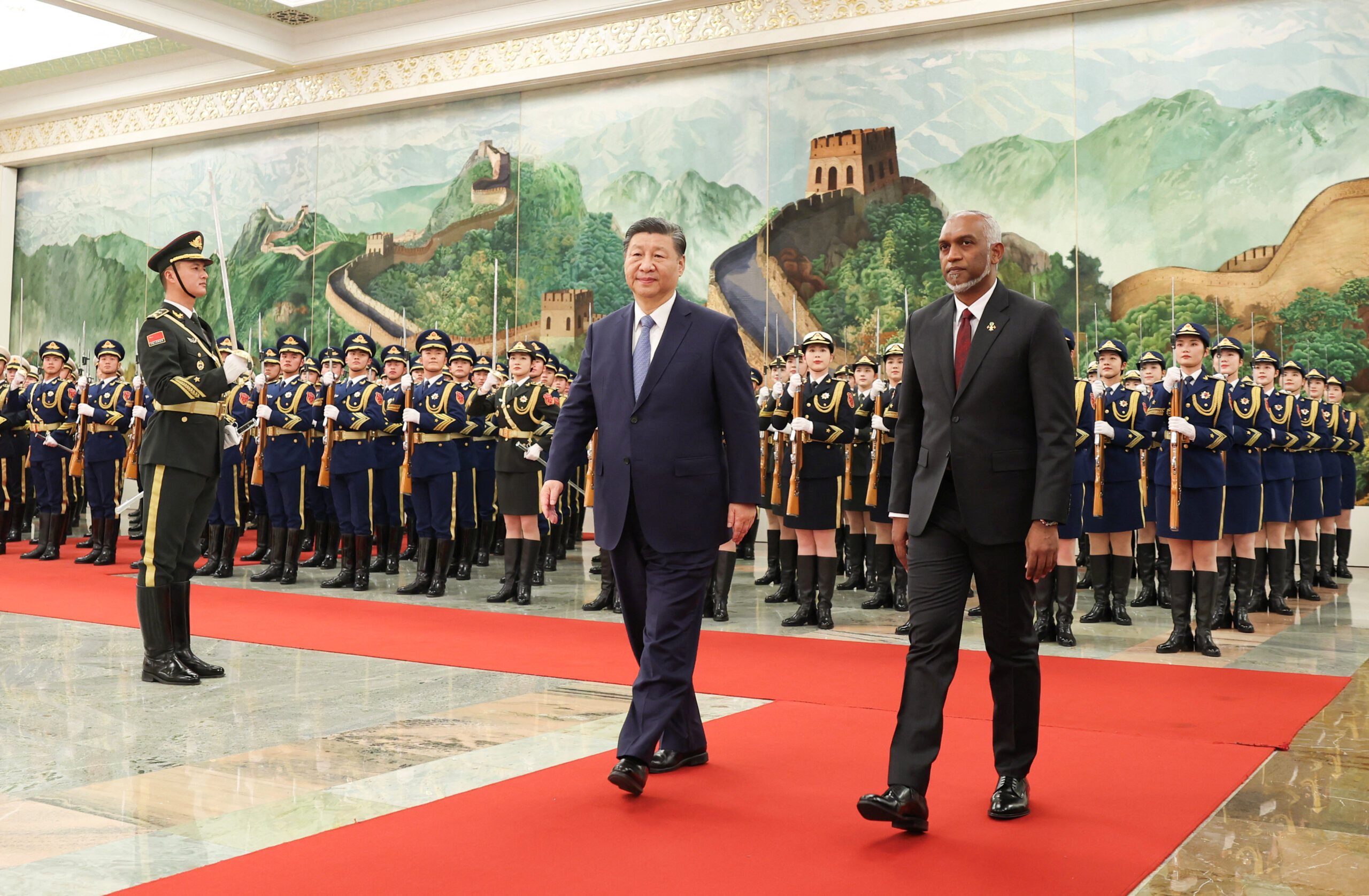5G in Africa: What’s its potential, Selasi Ahorlumegah?
Naa Oyoe Quartey
With its fast speeds and revolutionary potential, 5G stands out as a noteworthy milestone in the field of […]

The recently inaugurated president of the Maldives declared a deadline on Sunday, March 15, for India, its significant neighbouring country, to withdraw all of its troops from the small Indian Ocean archipelago nation. This ultimatum followed President Mohamed Muizzu’s return from an official visit to China.
The arguments
As of now, New Delhi has not provided a direct response to this demand. According to officials in both Male and New Delhi, there are currently 77 Indian soldiers stationed in the picturesque archipelago, renowned for its sun-soaked beaches and high-end holiday resorts. Additionally, there are 12 medical personnel from the Indian armed forces present in the region.
India asserts that its soldiers stationed in the Maldives play a crucial role in providing assistance with humanitarian aid and conducting medical evacuations for the inhabitants of the country’s remote islands.
Furthermore, India has contributed two helicopters and a Dornier aircraft to Male, primarily utilized for tasks such as marine surveillance, search and rescue operations, and medical evacuations. The management of these operations is overseen by the Indian troops stationed in the Maldives.
The start of these operations dates back to 2010 when Mohamed Nasheed served as the president of the islands, marking the initiation of the first helicopter and its crew’s activities in the Maldives.
The facts
Historically, India has maintained strong ties with the Maldives, providing essential support for its population of 500,000, including provisions like rice, vegetables, medicines, and humanitarian aid.
In 1998, India dispatched troops to assist then-President Abdul Gayoom in quelling a coup attempt. However, the troops were promptly withdrawn afterward. Despite the ongoing dependence on India for essentials, concerns have arisen within the Maldives about perceived interference by New Delhi in the nation’s domestic politics.
President Muizzu, elected in November, campaigned on an “India Out” platform, departing from the pro-India policies of his predecessors. He views New Delhi’s influence as a threat to the country’s sovereignty and has committed to removing Indian troops from Maldivian territory.
Following Muizzu’s meeting with Indian Prime Minister Narendra Modi during COP28 in the United Arab Emirates in December, both nations initiated negotiations to reassess their relationship, including the presence of Indian troops in the Maldives.
Analysts are saying China is the true motive of ousting India’s forces. In the strategically significant location southwest of India’s southern tip, the Maldives becomes a battleground for influence between New Delhi and Beijing. These islands lie along a crucial maritime trade route in the Indian Ocean, accounting for nearly 80% of China’s oil imports.
For India, the prospect of any Chinese military presence in the Maldives is viewed as a direct threat in its own regional sphere. Recent attacks by Houthi forces on commercial shipping in the Red Sea have underscored the vulnerability of maritime trade routes, emphasizing the imperative to safeguard them.
During President Muizzu’s recent state visit to Beijing, China and the Maldives elevated their relationship to a comprehensive strategic cooperative partnership.
Also, the Maldives carries a debt of $1.37 billion to China, constituting approximately 20% of its public debt, as per World Bank data. No wonder that China has something to say about Maldives’ foreign policy.

With its fast speeds and revolutionary potential, 5G stands out as a noteworthy milestone in the field of […]

Let me take you on a captivating journey through my intriguing conversation with Antonia Azoitei, a versatile artist […]